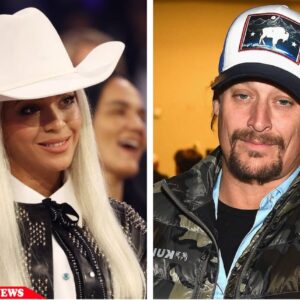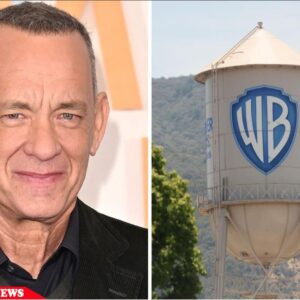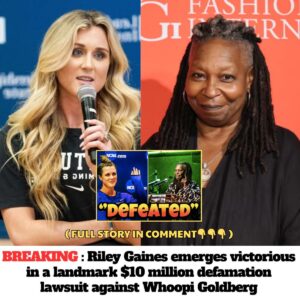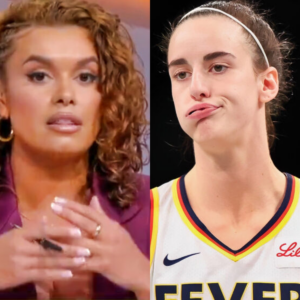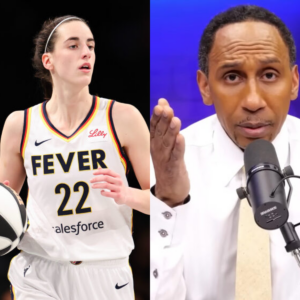Breaking: Elon Musk says, “I Stand with Harrison and Freedom of Speech,” in support of Harrison Butker.
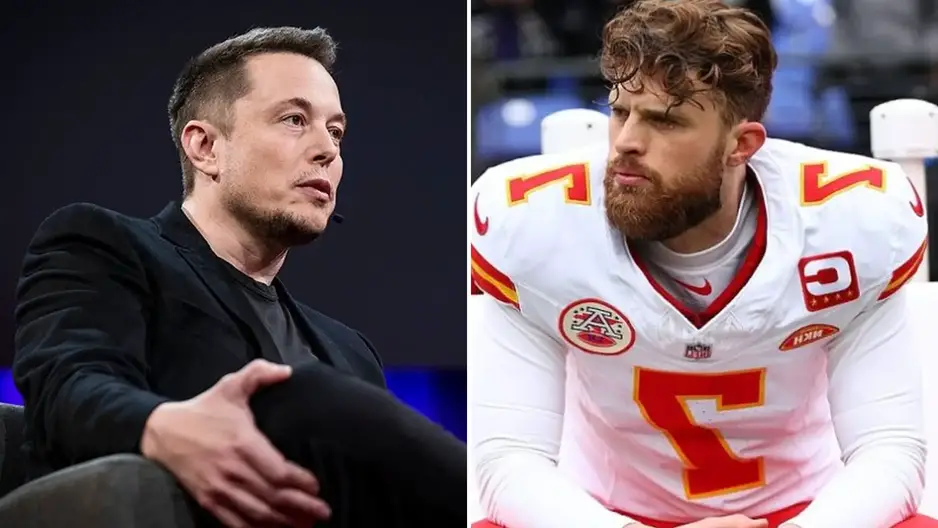
Elon Musk has openly endorsed Kansas City Chiefs kicker Harrison Butker, whose recent remarks have generated a great deal of controversy, in a development that ties together the domains of sports, culture, and commerce. Reiterating his support for Butker’s right to voice his opinions, Musk—who is well-known for his forceful presence in the tech business and regular incursions into public discourse—extended his support via Twitter.
Sharp differences emerged between Harrison Butker’s fans and detractors after his divisive speech at Benedictine College in Kansas. A heated discussion among public personalities and on social media ensued as he addressed a range of themes, including abortion, LGBT Pride, and what he called “degenerate cultural values.” A petition calling for his expulsion from the NFL was signed by up to 160,000 individuals in response to his comments, which also included criticism of the present government and support for conventional gender roles.
Elon Musk’s tweet, “I stand with Harrison and freedom of speech,” not only brought the conversation to a broader audience but also highlighted the Tesla CEO’s ongoing support of free speech. Musk presented his support for Butker as a matter of principle, highlighting the need of preserving the First Amendment. Musk has himself been at the heart of many disputes pertaining to his remarks and judgments.
In the past, the NFL has clarified that Butker’s comments were made in his own position and did not represent the ideas of the league, therefore distancing itself from his statements. In an effort to remain impartial in a social environment that is becoming more and more divided, the league is making a larger effort with this position to negotiate the murky seas of free speech within a business structure.
Like the reception to the first speech, the response to Musk’s support of Butker has been equally divided. The action is praised by Butker and Musk’s supporters as a valiant defense of individual liberty, honoring their courage in speaking out against what they see to be pervasive prejudice in the media and cultural industries. On the other hand, detractors contend that Musk’s backing can legitimize destructive ideas by enabling divided discourse to seem more legitimate.
A crucial discussion regarding the limits of free speech is brought to light by the junction of Musk’s remark and Butker’s speech, especially when it comes to prominent public people. It begs the issue of how companies, such as the NFL, should regulate or handle their players’ conduct off the field, particularly when it garners popular favor or criticism.
This debate is on how to strike a balance between a person’s right to free speech and an employer’s obligation to maintain particular standards and values. This delicate balance is especially important in high-profile sectors like IT and professional sports, where individual opinions may affect public image and brand integrity.
As the issue develops, further conversations about public figures’ obligations, speech rights, and the influence of social media on public discourse are probably going to come up. As part of his continued efforts to impact global discourse as well as technical innovation, Elon Musk sees this as a new chapter in his continuous involvement with social and cultural challenges.
The intricate relationship between corporate social responsibility, free speech, and cultural impact in modern society is highlighted by Elon Musk’s backing of Harrison Butker. Whether or not one concurs with Musk and Butker, this development offers an important case study of the dynamics of contemporary public life, where social problems, business, and sports constantly collide and flare up. The discussions that individuals like Musk and Butker have started will surely influence how society views free speech in general and its limitations in particular as society struggles with these concerns.
News
Breaking: Beyoncé Seeks Kid Rock Collab to Promote Her New Album. ” I Told Her And Her Husband to Shove it”
Breaking: Beyoncé Seeks Kid Rock Collab to Promote Her New Album. ” I Told Her And Her Husband to Shove it” Pop megastar Beyoncé’s quest for promotional…
Breaking: Country Duos Take Center Stage? Aldean and Anthony Will Perform For The Next Super Bowl Song
Breaking: Country Duos Take Center Stage? Aldean and Anthony Will Perform For The Next Super Bowl Song In an unexpected and thrilling announcement, the National Football League…
Breaking: Warner Bros Ends Production Deal With Tom Hanks to His Woke Views
Breaking: Warner Bros Ends Production Deal With Tom Hanks to His Woke Views In an episode that reads like a script from Hollywood’s golden age of scandals,…
Breaking: Country Catastrophe? Beyoncé Says Goodbye to America After Album Disappoints “Nobody Listens to My New Country Album”
Breaking: Country Catastrophe? Beyoncé Says Goodbye to America After Album Disappoints “Nobody Listens to My New Country Album” In a shocking turn of events, global superstar Beyoncé…
Roseanne Barr Joins Forces Non-Woke Production Studio
Roseanne Barr Joins Forces Non-Woke Production Studio In an unexpected move that has sent ripples through Hollywood, comedic icon Roseanne Barr has announced her collaboration with Hollywood…
Riley Gaines won $10 million against Whoopi Goldberg for defaming her reputation, extremely satisfied fans spoke up (VIDEO)
In the bustling realms of the entertainment and athletic world, seldom do intersections yield calm coexistence. A startling manifestation of this truth unfolded as Riley Gaines, an…
End of content
No more pages to load
